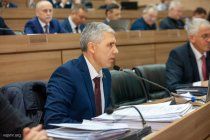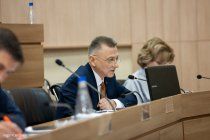 Русский
Русский English
English-







Rights of convicts revised
The Supreme Council deputies adopted the legislations that improve the situation of convicts in the second final reading. Amendments have been made to the Criminal Executive Code and the Law “On Detention of Suspects and Accused of Committing Crimes”. The legislations were initiated by a group of deputies.
The opportunity for convicts to receive secondary specialized or higher education, including in absentia, is prescribed. They were given only school knowledge or were taught a working specialty until now.
It will be possible for convicts to travel outside the penitentiary institutions for a short time in the prescribed manner, under escort and under exceptional life circumstances, for example, to bury a close relative or to meet with a disabled child. There are exceptions for the categories of convicts, the regime of detention and the characteristics of convicts, Oleg Petrik emphasized.
Short-term trips are prohibited for convicts with especially dangerous recidivism of crimes or those sentenced to life imprisonment, as clarified in the profile committee. They will not release murderers, rapists and those who have committed crimes against minors, as well as tuberculosis patients, HIV-infected people, those who have not completed a full course of treatment for venereal disease, alcoholism, substance abuse, drug addiction.
Changes have also been made with respect to suspects and accused of crimes. They will be allowed unlimited visits with a notary and correspondence with relatives and friends.
The legislations adopted today aimed at improving the situation of people in places of deprivation of liberty will come into force after signing by the President.




